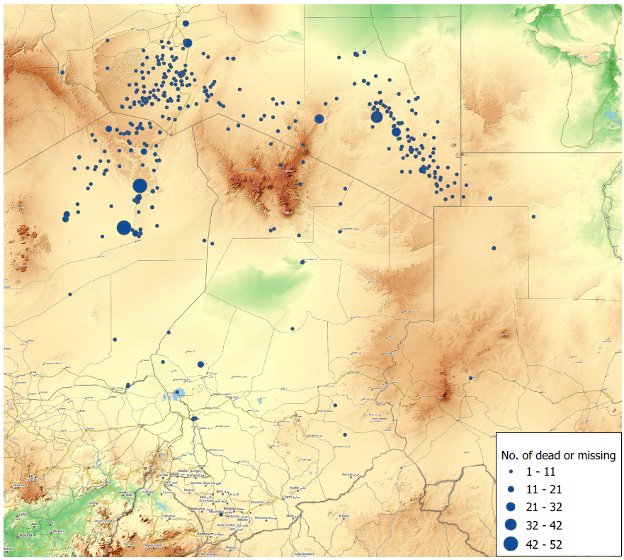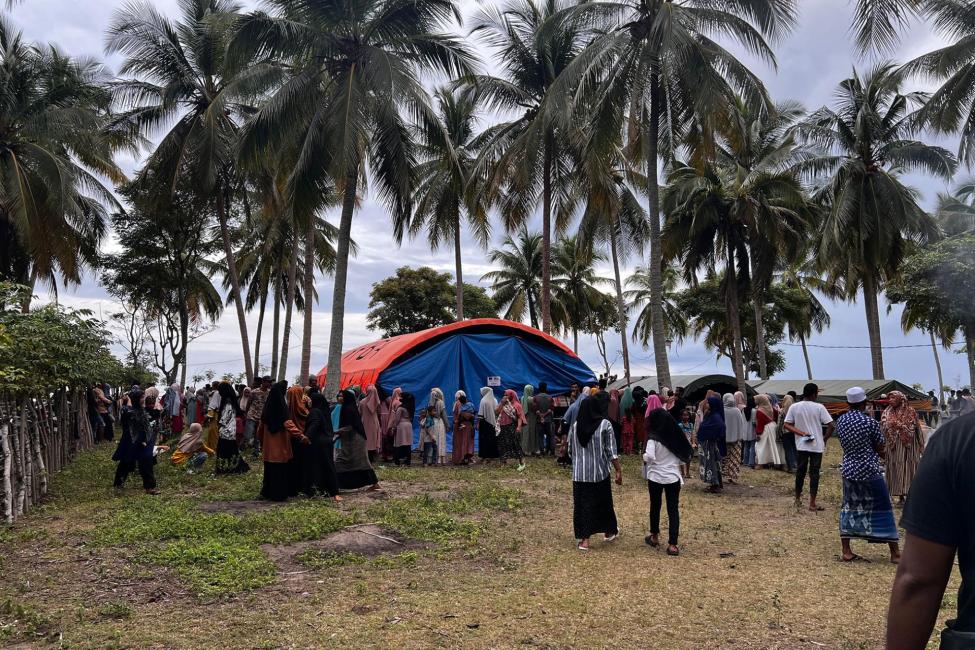-
Who we are
WHO WE AREThe International Organization for Migration (IOM) is part of the United Nations System as the leading inter-governmental organization promoting since 1951 humane and orderly migration for the benefit of all, with 175 member states and a presence in over 100 countries. IOM joined the United Nations system in September 2016.
About
About
IOM Global
IOM Global
-
Our Work
Our WorkAs the leading inter-governmental organization promoting humane and orderly migration, IOM plays a key role to support the achievement of the 2030 Agenda through different areas of intervention that connect both humanitarian assistance and sustainable development.
Cross-cutting (Global)
Cross-cutting (Global)
- Data and Resources
- Take Action
- 2030 Agenda
IOM Deeply Saddened by Deaths of 27 Migrants, including Children, in the Chadian Desert
N’djamena – N’djamena – The International Organization for Migration (IOM) is deeply shocked and saddened by the recent discovery of the bodies of 27 migrants, including four children, in the Chadian desert.
The migrants reportedly left Moussoro, a crossroads town in West-Central Chad, 17 months ago on a pick-up truck. It is believed the truck got lost in the deep desert, broke down due to mechanical issues and the migrants subsequently died of thirst.
We are deeply saddened by this most recent tragedy and extend our heartfelt condolences to the migrants’ families,” said Anne Kathrin Schaefer, IOM Chad Chief of Mission. “We need stronger collective action to prevent further deaths” she added.
IOM’s Missing Migrants Project has documented the deaths and disappearances of more than 5,600 people transiting through the Sahara Desert since 2014, with 149 deaths recorded so far in 2022. Since 2014, 110 migrant deaths have been recorded within Chad, including this latest incident but these numbers are likely higher as many migrant deaths go unrecorded, leaving families worried and without answers as to their loved ones’ whereabouts.
Last June, 20 bodies of Chadians and Libyans were found in the Libyan desert, in Koufra, a town located along the Chad-Libya border.
“Without access to reliable information and safe migration pathways, migrants will continue to take risky roads through the deep and perilous desert, with tragic consequences,” says IOM’s Anne Schaefer.
There is a need for stronger coordination and comprehensive support to enable search and rescue operations and provide humanitarian assistance and protection in extremely remote areas.
“This tragedy occurring on the dawn of International Migrants’ Day should be a wake-up call for us all to act more decisively to prevent migrant deaths along dangerous irregular migration routes”

**
For more information, please contact:
In Geneva:
Safa Msehli, +41 79 403 5526, smsehli@iom.int
In N’Djamena :
François-Xavier Ada-Affana, +98 98 56 02, fadaaffana@iom.int

